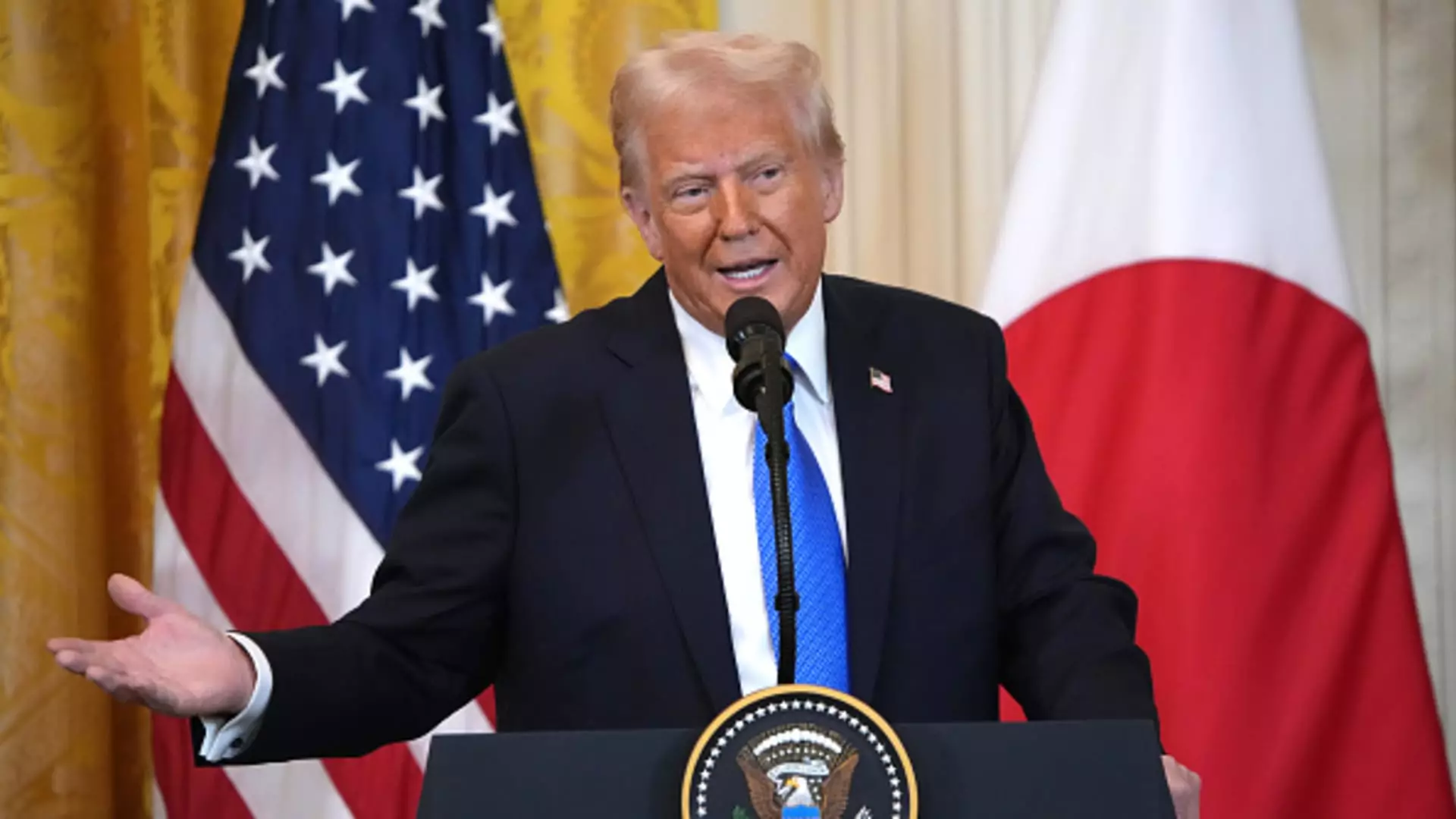In the theatrical spectacle of global trade negotiations, political leaders often parade their latest deals as monumental achievements. However, beneath the fervor and claims of “historic” progress lies a troubling reality. The recent announcement of a purported “massive” trade deal between the United States and Japan epitomizes this dichotomy. While the spectacle suggests an era-defining breakthrough, the underlying implications reveal a flawed approach rooted in short-term gains and myopic economic thinking. Promises of “reciprocal” tariffs and billons in investments are often exaggerated or, at best, overly optimistic, masking the fragile foundations upon which they rest.
This deal, heralded by Trump as a “perhaps the largest deal ever made,” is more a testament to political bravado than sustainable economic strategy. The narrative emphasizes creating “hundreds of thousands of jobs” and massive investments, but such claims tend to oversimplify complex trade dynamics. Job creation driven by tariff reductions can be illusory; history shows that such promises often result in uneven benefits, often favoring corporate profits over broad economic welfare. It’s a classic case of political spin camouflaging underlying risks—risks that threaten to undermine long-term prosperity.
The Reality of Tariffs and the Myth of Free Trade
The core of this agreement—lowering auto tariffs from 25% to 15%—may seem beneficial at face value, but it is emblematic of a misguided fixation on tariffs as a primary tool for economic growth. The reality is that tariffs distort markets and often hurt consumers through higher prices and reduced choices. While Japan’s auto exports to the U.S. fell significantly in recent months, this decline underscores the volatility and fragility of these markets. Tariffs, rather than shielding domestic industries, frequently result in retaliatory strikes and economic distortions that ripple through supply chains.
Furthermore, the argument that such negotiations will create countless jobs is optimistic at best. The economic landscape has evolved beyond simple tariff calculus; factors like technological innovation, automation, and global supply chains play a far more significant role in employment and competitiveness. The promise of U.S. profits disproportionately benefiting from the deal and Japan opening up rice and agricultural markets may be less consequential than policymakers claim. These negotiations risk trading short-term political victories for long-term economic vulnerabilities.
The Political Dimensions and the Myth of Stability
Amid the spectacle, Japan’s political landscape is also teetering. The deal comes at a sensitive juncture, with Prime Minister Shigeru Ishiba’s leadership under threat following electoral losses. While the deal might bolster his position temporarily, it also exposes the vulnerabilities of political elites to short-sighted economic incentives. The hope that an economic “win” will stabilize internal politics ignores the deeper fracture lines within Japan’s governance and societal fabric. Additionally, Japan’s staunch reliance on auto exports to sustain its economy highlights the dangers of overdependence on specific sectors, especially ones vulnerable to international market plunges.
From a broader perspective, these agreements highlight the limitations of liberal-friendly trade policies rooted in reciprocal benefits and open markets. They tend to favor the interests of established corporate power and political elites while neglecting the needs of working-class communities and small producers. The narrative of “opening markets” often becomes camouflage for protecting the status quo and perpetuating economic inequalities. Consequently, the illusion of mutual growth and prosperity masks deep-seated systemic issues that demand comprehensive reforms rather than cosmetic deals.
Real economic resilience cannot be built solely on the foundation of superficial trade agreements that prioritize headlines over substantive reform. Policymakers pursuing such deals must critically examine the long-term consequences—escalating inequality, corporate dominance, and economic volatility—often concealed by grandiose rhetoric. The U.S.-Japan deal exemplifies the seductive narrative that trade deals alone can sustain growth; however, a more honest reflection reveals that genuine prosperity requires addressing structural issues, investing in sustainable industries, and fostering equitable development. Until the political class abandons the illusion that trade deals are magic bullets, economic stability will remain elusive, and the promise of shared prosperity will continue to fade into the background noise of political spectacle.

Leave a Reply